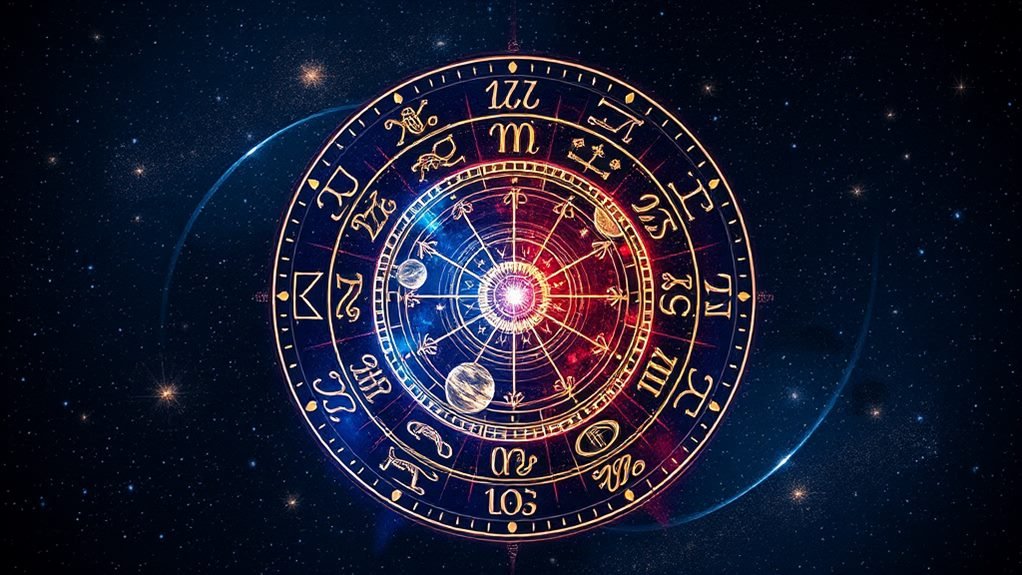Unveiling Life's Mysteries: The Houses of Vedic Astrology
Embark on an enlightening journey through the ancient wisdom of Vedic astrology, where the mysterious blueprint of life unfolds in the twelve houses—a cosmic map charting your destiny, personal challenges, and every facet of your existence from the moment you take your first breath. Your adventure begins with the self—revealed in the first house of identity—and extends to the far reaches of wealth, communication, and relationships, each house pulsating with insights offered by celestial alignments. Explore how house systems, such as the Placidus, Porphyry, and the spiritually resonant Bhava, have been shaped by historical wisdom and continue to deeply influence modern-day astrological practices, providing unique lenses through which to view the stars. As you align yourself with these celestial markers, the rich tapestry of Vedic astrology invites you to understand your place in the universe not just through the stars, but also through the profound principles of Karma and reincarnation, ultimately guiding you towards greater self-awareness.
The Basics of Vedic Astrology
Vedic astrology, also known as Jyotish, is an ancient form of astrology that originated in India. It offers a unique perspective on life and destiny, with roots that trace back thousands of years. The system is based on the belief that the positions of planets and stars at the moment of your birth have a profound influence on your life. In essence, Vedic astrology maps out your karmic pathway.
The Ancient House System of Vedic Astrology
The house system in Vedic astrology is a cornerstone of the tradition. Each house is an integral part of the astrological chart and represents a specific area of your life. The system encompasses twelve houses, each with its own unique significance. These houses are determined by the planetary positions at the time of your birth and provide insights into your destiny and personal challenges.
The Twelve Houses and Their Significance
Starting with the first house, which concerns self-awareness and identity, Vedic astrology's house system paints a detailed picture of various life aspects. Other houses delve into wealth, communication, relationships, and more. Each house can be viewed as a stage in life's journey, influencing different facets from your health to your career, ultimately shaping the person you become.
Understanding House Systems in Vedic Astrology
The study of Vedic astrology includes understanding various house systems, which are methods for dividing the sky relative to the Earth into twelve sections.
Placidus System
The Placidus System is one of the most prevalent house systems in use. It divides the zodiac into twelve unequal segments based on time. Interestingly, the size of each house varies depending on your birth time and location, emphasizing that each individual's path is unique.
Porphyry System
The Porphyry System offers an even distribution, particularly dividing the Ascendant and Midheaven degrees among the houses. This results in an astrological chart that is more balanced in its layout, which may mirror a more balanced approach to life's different areas.
Whole Sign System
The Whole Sign System takes a simpler approach, assigning one whole zodiac sign to each house, always beginning with the Ascendant sign. This creates a clear and easy-to-understand chart that many find useful for its straightforward representation of planetary influences.
Equal House System
In the Equal House System, each house is exactly 30 degrees wide, with the first house starting at the Ascendant degree. This system emphasizes equality and balance, suggesting a life journey that offers an equal focus on each life area.
Koch System
The Koch System is known for its precision, adjusting house size and position according to the specific latitude of your birth. It offers personalized insights, reflecting the nuanced differences in individual experiences and potential paths.
Campanus System
Finally, the Campanus System employs both the Midheaven and the Ascendant to slice the ecliptic into twelve equal parts. This provides a unique blend of perspectives, merging two significant points of your chart.

Evolution of House Systems
Influences from Greek and Egyptian Astrology
House systems are not static and have evolved over centuries. They have been shaped by various cultural and astronomical influences, including Greek and Egyptian astrology. These ancient practices helped refine the underlying principles, leading to the diverse house systems available to you today.
Changes Over Time
As our understanding of the universe expands and our methods for measuring time and space become more sophisticated, house systems in astrology also adapt and change. Throughout history, astrologers have sought to create systems that provide the most accurate reflections of life's complexities.
Importance of House Systems in Astrological Chart Interpretation
Dividing the Chart into Sections
By dividing your chart into sections, each house system provides a unique framework for understanding the myriad influences on your life. This segmentation is crucial for breaking down your astrological blueprint into comprehensible parts that speak to individual life themes.
Correlation to Different Life Areas
Each house in your chart correlates to distinct life areas, from your innermost thoughts to your public persona, from your home life to your career. Understanding these correlations allows you to decipher the astrological advice and apply it to improve various aspects of your life.

Factors Influencing Choice of House System
Personal Preference
The choice of a house system can often boil down to personal preference. Each astrologer develops a special relationship with the systems they use, often influenced by their experiences, the accuracy of their readings, and the tradition in which they were trained.
Cultural Influences
Cultural background can also play a critical role in the choice of house system. Different cultures may favor certain systems that align with their historical astrological practices and philosophical outlooks.
The 'Bhava' System in Vedic Astrology
Dividing the Zodiac into 12 Equal Segments
The 'Bhava' system in Vedic astrology divides the zodiac into 12 equal segments, just as the common house systems do. However, it subtly differs in interpretation and calculation, focusing more on the rising sign and its impact on the unfolding of your life's journey.
Ruler of Each Bhava
Each Bhava, or house, has a planetary ruler that exerts its influence over that part of your life. By understanding the ruler of each Bhava, you begin to unravel the complex weave of destiny's threads.

Spiritual Dimension in Vedic Astrology
Inclusion of Karma and Reincarnation Concepts
In Vedic astrology, your birth chart is more than a map of the heavens; it is a map of your soul's past, present, and future. The system incorporates the concepts of Karma and reincarnation, suggesting that your present life is shaped by past actions and will influence future experiences.
Interpreting Charts from a Spiritual Perspective
Interpreting your chart through Vedic astrology offers a spiritual lens, providing insights into your soul's lessons and growth. It encourages a deeper understanding of your purpose and the cyclical nature of life.
Comparison of Vedic and Western Astrology
Sidereal Zodiac vs Tropical Zodiac
One of the key differences between Vedic and Western astrology is the zodiac used. Vedic astrology employs the sidereal zodiac, which is based on the fixed positions of constellations, whereas Western astrology uses the tropical zodiac, centered around the Sun's position at the vernal equinox.
Focus on Planetary Positions vs Focus on the Sun's Position
Furthermore, Vedic astrology places a significant emphasis on the planetary positions at the time of birth. In contrast, Western astrology often emphasizes the Sun's position, representing the self, among other aspects.

Alternative House Systems in Vedic Astrology
Placidus System
Among the alternative systems in Vedic astrology, the Placidus System is occasionally used for its dynamic and time-sensitive approach to chart interpretation.
Equal House System
The Equal House System is also sometimes applied within Vedic astrology due to its straightforward equal division of houses, which simplifies the calculation and interpretation process.
Koch System
The Koch System, while less commonly used, presents another alternative for Vedic astrologers seeking to incorporate the individual's birth latitude into the astrological reading for greater specificity.
Conclusion
House systems in Vedic astrology serve as powerful tools for understanding the intricate tapestry of your life. They provide frameworks within which the universal energies play out in unique and personal ways. Whether you gravitate towards the traditional 'Bhava' system or explore alternative house systems, each offers different perspectives and insights. As you venture deeper into the knowledge of Vedic astrology, you become more equipped to navigate life's journey with wisdom and grace.
🔴 Need Clarity on your Situation?




